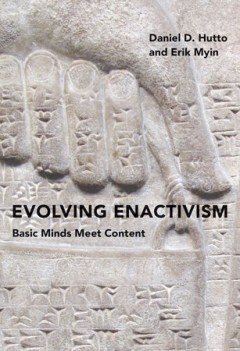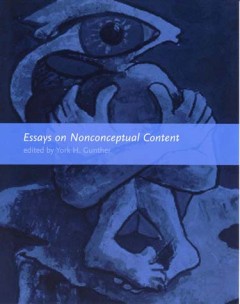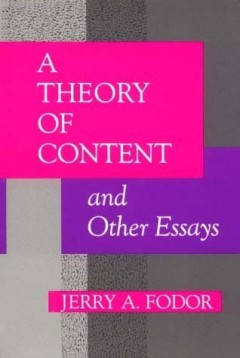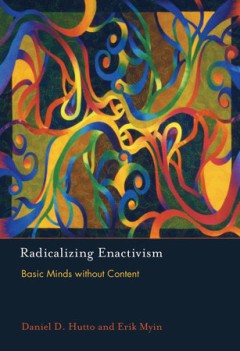Filter by

Evolving enactivism :basic minds meet content
Evolving Enactivism" argues that cognitive phenomena - perceiving, imagining, remembering -- can be best explained in terms of an interface between contentless and content-involving forms of cognition. Building on their earlier book Radicalizing Enactivism, which proposes that there can be forms of cognition without content, Daniel Hutto and Erik Myin demonstrate the unique explanatory advantag…
- Edition
- -
- ISBN/ISSN
- 9780262339773
- Collation
- 1 online resource (xxvi, 328 pages).
- Series Title
- -
- Call Number
- -

The Elm and the Expert: Mentalese and Its Semantics
"A Bradford book."OCLC-licensed vendor bibliographic record.
- Edition
- -
- ISBN/ISSN
- 0585020515
- Collation
- 1 online resource (xii, 128 pages) :illustrations.
- Series Title
- -
- Call Number
- -

Essays on Nonconceptual Content
"A Bradford book."According to the widespread conceptualist view, all mental contents are governed by concepts an individual possesses. In recent years, however, an increasing number of philosophers have argued for the indispensability of nonconceptual content based on perceptual, emotional, and qualitative experiences; informational and computational states; memory; and practical knowledge. Wr…
- Edition
- -
- ISBN/ISSN
- 9780262274524
- Collation
- 1 online resource (339 pages)
- Series Title
- -
- Call Number
- -

A Theory of Content and Other Essays
A Bradford book."OCLC-licensed vendor bibliographic record.
- Edition
- -
- ISBN/ISSN
- 9780262287999
- Collation
- 1 online resource (xii, 270 pages)
- Series Title
- -
- Call Number
- -

Radicalizing Enactivism: Basic Minds without Content
Hutto and Myin promote the cause of a radically enactive, embodied approach to cognition which holds that some kinds of minds - basic minds - are neither best explained by processes involving the manipulation of contents nor inherently contentful. It opposes the widely endorsed thesis that cognition always and everywhere involves content. The authors defend the counter-thesis that there can be …
- Edition
- -
- ISBN/ISSN
- 0262312174
- Collation
- 1 online resource
- Series Title
- -
- Call Number
- -
 Computer Science, Information & General Works
Computer Science, Information & General Works  Philosophy & Psychology
Philosophy & Psychology  Religion
Religion  Social Sciences
Social Sciences  Language
Language  Pure Science
Pure Science  Applied Sciences
Applied Sciences  Art & Recreation
Art & Recreation  Literature
Literature  History & Geography
History & Geography